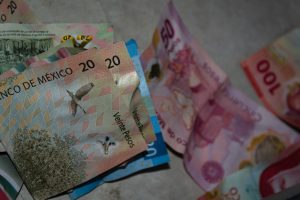 By Dr. Alejandro Díaz-Bautista, Economist and Researcher (PhD)
By Dr. Alejandro Díaz-Bautista, Economist and Researcher (PhD)
In 2025, the Mexican peso has shown a significant appreciation against the U.S. dollar, solidifying its reputation as a “super peso.” This trend has surprised financial and economic analysts, particularly following a volatile 2024 that created uncertainty in the markets.
The Mexican peso moved from 20.88 per dollar in December 2024 to 18.87 in June 2025, representing a cumulative gain of approximately 9.6% so far this year.
The Bank of Mexico adopted a more flexible stance by reducing its benchmark interest rate, which encouraged domestic investment and consumption. Despite this reduction, the rate remains attractive to foreign investors, maintaining capital inflows to Mexico in 2025.
Contrary to pessimistic forecasts, the new government led by Claudia Sheinbaum has successfully conveyed economic confidence to the markets. Trade tensions and tariff-related political frictions have weakened the dollar, benefiting the peso in 2025. The preliminary trade agreement between the United States and China reduced risk aversion and strengthened emerging market currencies.
Mexico’s 10-year interest rate has declined, signaling lower perceived risk among international investors.
 The performance of the Mexican peso in 2025 has been remarkable, not only for its appreciation against the dollar but also for the resilience it has shown in an uncertain global environment. The “super peso” is the result of a combination of internal factors—such as monetary policy and institutional stability—and external factors, including the weakness of the dollar and geopolitical adjustments.
The performance of the Mexican peso in 2025 has been remarkable, not only for its appreciation against the dollar but also for the resilience it has shown in an uncertain global environment. The “super peso” is the result of a combination of internal factors—such as monetary policy and institutional stability—and external factors, including the weakness of the dollar and geopolitical adjustments.
The agreement reached between Mexico and the United States on July 31, 2025, represents a strategic truce amid aggressive U.S. trade policies. Mexico successfully avoided new tariffs, protected the USMCA (T-MEC), and maintained an open dialogue, reinforcing its position as a reliable partner in 2025. However, the 90-day deadline imposes significant pressure to reach a definitive agreement that ensures medium- and long-term economic and trade stability.
Dr. Alejandro Díaz-Bautista
Research Professor in International Economics at El Colef.
Distinguished member of the National System of Researchers of the National Council of Humanities, Sciences, and Technologies (Conahcyt), now part of the new Secretariat of Science, Humanities, Technology, and Innovation (Secihti).


